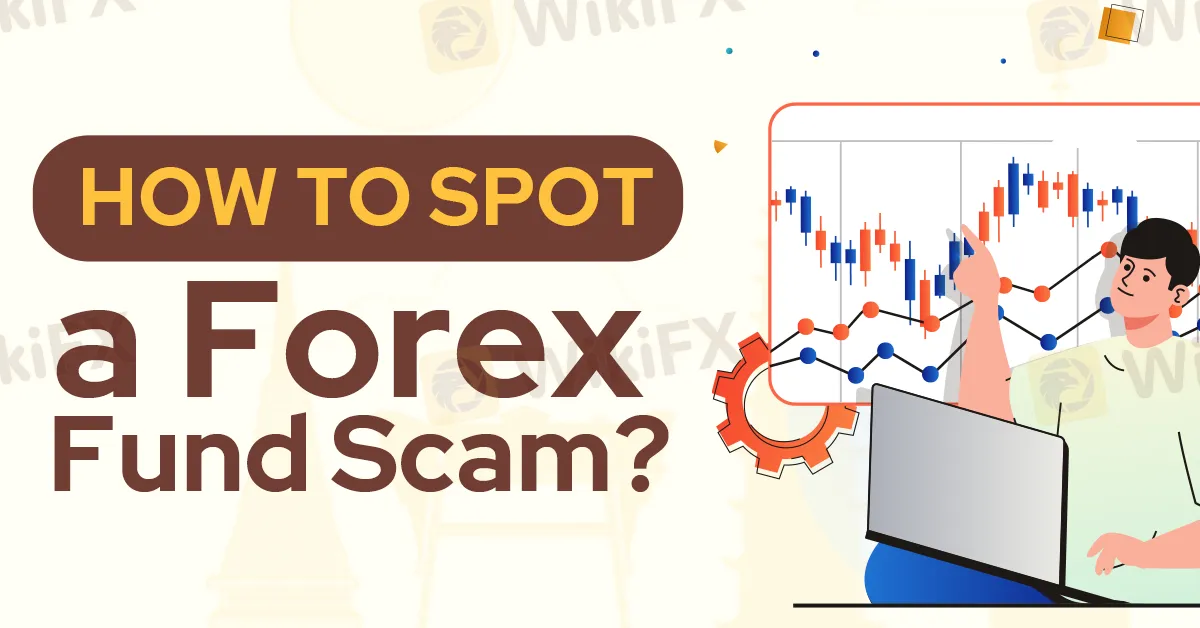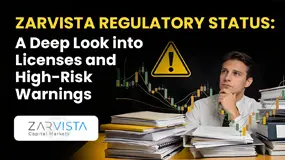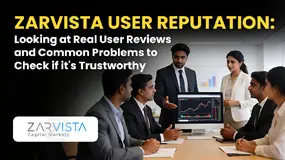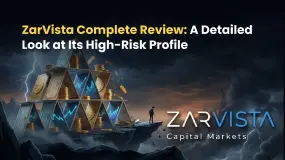Abstract:Navigating the intricate landscape of Forex trading requires an astute understanding of the enticing yet perilous realm, where alluring success stories intertwine with potential scams, demanding a vigilant appraisal of Forex Fund Managers' practices.

In the realm of financial markets, while the pathways of market movements might seem clear-cut, they are imbued with a significant degree of risk. Among various traditional investment methods, the realm of Forex trading emerges as notably riskier, mainly when one is dealing with funds that have a direct impact on one's livelihood.
However, the foreign exchange market, or Forex, exerts a magnetic pull on new traders due to its alluring tales of spectacular triumph. While the landscape indeed boasts numerous success stories, it's imperative to discern between authentic achievements and those who merely conjure images of unearned luxuries, such as posing beside an elusive “Ferrari”, swimming in a pool of cash, flaunting expensive watches and more.
These less scrupulous “traders” are acutely aware of the aspirational narratives woven into the hopes of individuals seeking transformative change. Unfortunately, these opportunists exploit these dreams, preying on the vulnerability of greed. Many lack even six months' worth of trading experience. Yet, their adeptness at crafting enticing narratives enables them to lure unsuspecting traders into the clutches of their Forex Fund Manager Scams.
The question arises: How can one differentiate a legitimate Forex Fund Manager from a scam artist? Unravelling the secret of a Forex Fund Manager scam entails a two-step process designed to sift the unequivocal scams from the possibly deceptive entities, all through the lens of two pivotal questions.
A bona fide Forex Fund Manager's singular objective revolves around generating returns for the investor, with a profit share ranging between 20-30% — a straightforward and transparent arrangement. Conversely, a fraudulent Forex Fund Manager has a markedly divergent agenda: to amass personal wealth from various sources, exploiting many avenues.
A significant ethical quandary emerges when a Forex Fund Manager solicits the opening of an account with a broker of their choosing, often through a designated referral link. The crux of the conflict lies in the subsequent sequence of events, as illustrated below:
Upon channelling funds through the provided link, the fund manager frequently boasts a contract with a broker, which might not necessarily be a reputable entity but rather one that offers lucrative commissions.
In a symbiotic relationship, the fund manager gains remuneration for every position initiated, irrespective of whether these positions yield losses or gains. As a result, the fund manager's motivation pivots towards maximizing trade volume to extract commissions from the collaborating broker.
Consider the scenario where a fund manager garners $10 per traded lot, with the capacity to wield leverage of 1:500 and execute five lots concurrently on a $1,000 account. In this scenario, each position secured translates to a $50 commission for the fund manager, equating to 5% of the account's value.
To navigate the treacherous terrain of potential conflicts of interest, a strategic decision involves sidestepping an account established through the fund manager's designated broker. Instead, ascertain the precise account type preferred by the fund manager for trading and align this with a reputable Forex Broker offering those specific account options. One institutes a layer of protection by formalizing an agreement with the fund manager before divulging account access credentials.
Turning to average monthly returns, while the aspiration to cultivate substantial account growth is understandable, a staggering 100% augmentation stemming from a solitary entry signals a suspicious strategy. Such an outcome suggests the fund manager might be involved in hedging, a practice involving offsetting positions against each other. This tactic lacks the foundation of sound money management and bespeaks an alarming disregard for clients' interests.
Notably, even established hedge funds seldom achieve a 100% return within a year, raising eyebrows when juxtaposed with the promise of doubling returns in a week. The “double up account” paradigm looms as one of the most prevalent Forex Scams, exploiting the volatility of markets. Operating within this framework, scamming Forex Fund Managers orchestrate a duplicitous dance:

Identifying two investors, each contributing $5,000 (designated as Victim A and Victim B), the fund manager proceeds to ink a 50% profit share agreement with both parties.
Under the guise of managing both accounts, the fund manager disregards clients' welfare and focuses on securing a personal profit of $2,500.
By executing a buy order on Victim A's account and a sell order on Victim B's account, the fund manager precipitates Victim A's account depletion while doubling the balance in Victim B's account.
In the aftermath, the fund manager placates Victim A with explanations of market volatility while delighting Victim B with their ostensibly impressive gains. Seizing the opportune moment, the fund manager requests a $2,500 payment from Victim B.
In this convoluted narrative, the fund manager siphons funds from Victim A to fund the apparent windfall of Victim B, perpetuating a cycle of deceit. To detect such manipulation, a prospective investor can challenge the fund manager to furnish three to four instances of verifiable success. Scrutinizing the specifics of these instances — particularly instances of exaggerated returns through minimal trades — serves as a litmus test to weed out fraudulent fund managers.
In Forex trading, as in any financial venture, vigilance is critical. The allure of exorbitant returns must be tempered with an astute appraisal of the mechanisms employed by fund managers. An investor's discernment in selecting a Forex Fund Manager transcends monetary considerations, forging a pathway fortified by due diligence and prudence.











